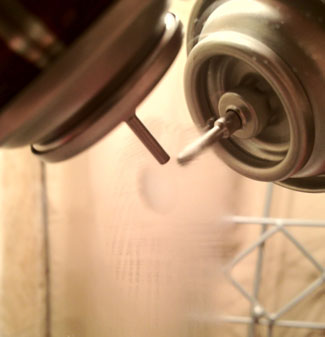A Guide to Whip-It! Butane
If you are looking for Material Safety Data Sheet information on Whip-It! butane or some other refined butane, the first place to start is either with the distributor or manufacturer. All reputable businesses that manufacture or distribute the gas, whether as a butane refill or in a lighter or torch, should be able to provide chemical and safety data on the product.
There are dozens of companies that manufacture and distribute refined butane, but the top ranked brands — both in terms of reliability of the product and availability of safety data, are as follows (but in no particular order):
- Colibri butane
- Vector butane
- Newport butane
- Power 7x butane
- Lucienne butane
- Power 5x butane
- Stok butane
- Puretane
- Whip-It! 9x
- Whip-It! Premium
- Comoy
- Fasfil
- Neon
- Meteor 7x
- Blazer
- Benzomatic
- Smokit
- Xikar
- Chef-Master
- Zippo
- Ronson
When considering which refined butane is right for you, think of the cost, too. Some brands are simply more expensive than others because of their "name" while others — available at every convenience store and gas station imaginable — are less expensive, but work nonetheless. Buy which ever you can afford, and evaluate it as you go along.
The Mirror Test for Quality
 There are different ways to evaluate how good a particular brand of butane is before you buy it. One, of course, is reputation. Is the brand well known? How long has it been on the market? Some people evaluate butane by trial and error. Did my torch lighter work as well as I expected? Did the butane refill canister last as long as I needed when camping?
There are different ways to evaluate how good a particular brand of butane is before you buy it. One, of course, is reputation. Is the brand well known? How long has it been on the market? Some people evaluate butane by trial and error. Did my torch lighter work as well as I expected? Did the butane refill canister last as long as I needed when camping?
One other way to evaluate butane is what is referred to as the "mirror test for quality." In order to keep a lighter, torch, or refill canister working properly, the manufacturer will often add a small amount of paraffin wax to the gas. To test, spray a small amount of butane on a mirror and see how much residue is left on the mirror. Be suspicious of butane that leaves either no residue at all, or a large amount.
A Butane Powered Car, Really?
Alternative fueled vehicles are all the rage now. From über-expensive full-electric models offered by Tesla, to less expensive electric and electric-gas hybrids from Honda, Toyota, or Ford, companies are jumping on the non-petroleum bandwagon like never before.
If you have used butane, you probably have asked, "Can I run my car or truck on it?" In most cases, the answer is a "maybe." Motor vehicles can run on a variety of bio-diesel or natural gas platforms, one being what is called LPG, or Liquefied Petroleum Gas — another name for butane. According to some reports, there are upwards of 11 million motor vehicles that run on LPG, including 4 million in Europe alone.
Converting a vehicle to LPG use can be expensive, but may pay for itself far quicker than a purely electric drive train. Besides a larger tank to hold the fuel, other conversions need to happen that should only be performed by a knowledgeable and licensed automotive specialist.
If you are thinking of converting your vehicle to run on butane, there are a number of advantages and disadvantages to be aware of.
- Advantage: Reduced carbon emissions.
- Advantage: LPG powered engines are quieter than most traditional gasoline or diesel engines.
- Advantage: LPG evaporates quickly when spilled, unlike petroleum.
- Advantage: Reduces the reliance on petroleum and is less expensive.
- Advantage: Your LPG powered vehicle may qualify for tax credits due to its energy efficiency.
- Disadvantage: High start-up cost.
- Disadvantage: Potentially higher insurance and repair or maintenance cost.
- Disadvantage: Lack of infrastructure. Not every gas station has pumps that serve LPG.
- Disadvantage: The manufacturer’s warranty could be voided by a third party LPG conversion.
Health Concerns
Butane is a plentiful gas derived from natural gas or petroleum. It is a flammable hydrocarbon that can produce a flame of 2,700 degrees Fahrenheit, but also can cause frostbite in the eyes or skin through direct exposure. What all of this means is that it is a gas that needs to be treated with caution. Some potential health concerns to be aware of are:
- Euphoria, or intense — but in all likelihood, false — feelings of well being.
- Drowsiness, a state of near sleep or a condition in which the person feels the need to sleep.
- Narcosis or unconsciousness.
- Asphyxia, where the body is not receiving a sufficient supply of oxygen.
- Fluctuations in blood pressure.
- Temporary muscle loss.
Information on butane gas is readily available from many different sources, but it is important to get data from a trusted source. One of the most knowledgeable companies around about butane data is Butane Source.

